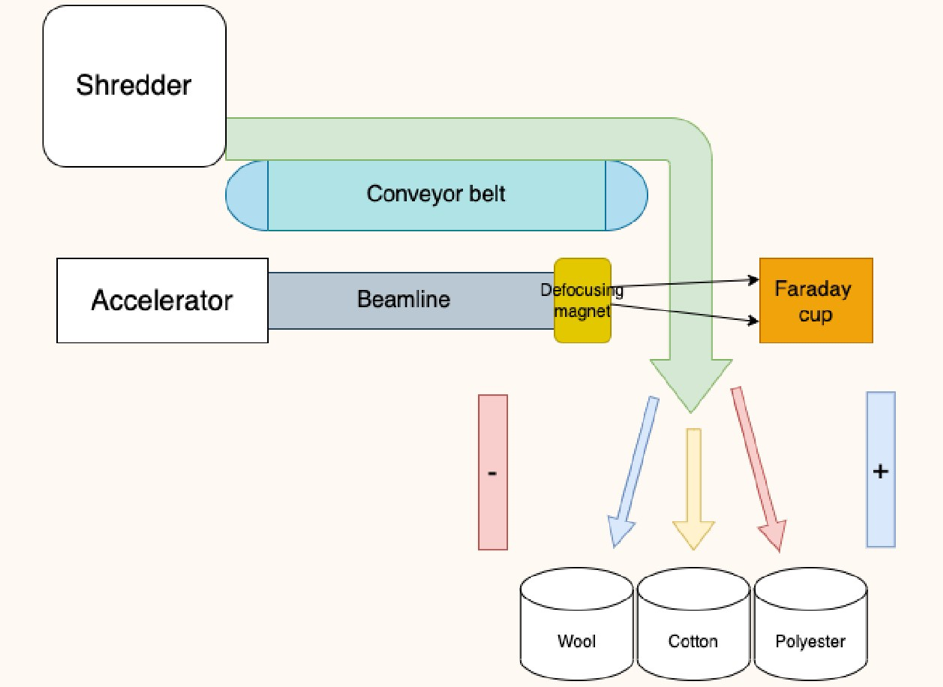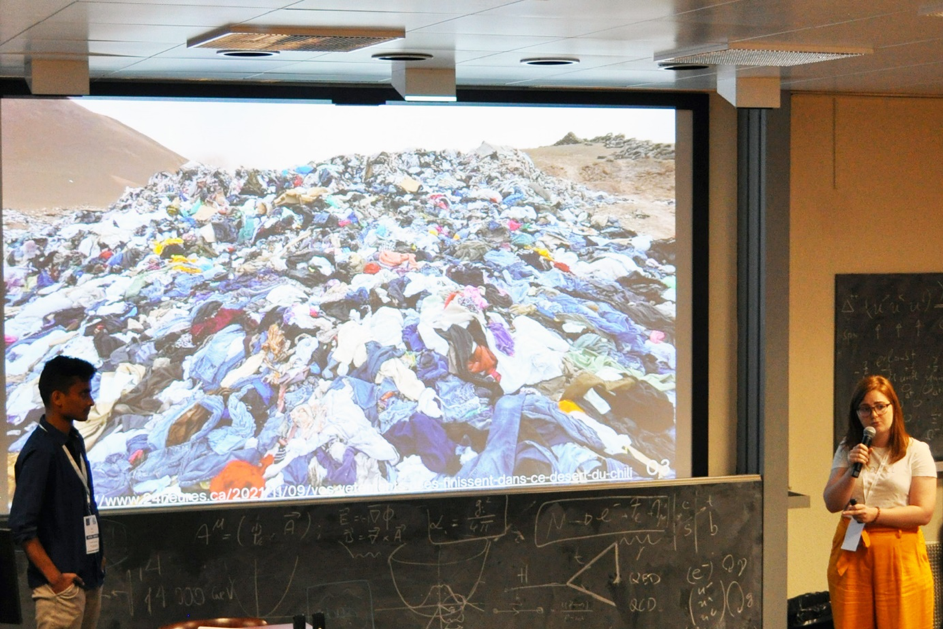Currently, only 1% of textile waste is recycled into new clothes. Recycling textile polymers is a costly and challenging task, as is the separation and recycling of blended textiles – complex mixtures of different fibres, often cotton or wool with synthetic materials. Could particle accelerators solve the problem of textile waste and contribute to circular fashion?
This was the subject of the winning project at this summer’s challenge-based innovation event, held by the EU-funded I.FAST project. A multi-disciplinary team of students proposed the use of an electron beam to segregate different fabric components through electrostatic separation. This would be done with used and unused clothes and the separated components would be reintroduced into the manufacturing cycle of recycled clothes.
The 2023 edition of its challenge-based innovation event was held at the European Scientific Institute (ESI) in Archamps, near Geneva. The event explored how accelerator technologies could address environmental issues. It brought together 24 students of 14 different nationalities, with as many different backgrounds: physics and engineering, as well as environmental science, communication and sociology. Three other projects were presented: studying pollen sterilisation of invasive plants; investigating innovative methods to recycle solar panels; and examining in-situ corrosion prevention of offshore wind turbines.

"The four teams demonstrated great passion and skill in building their projects. The I.FAST-CBI project once again highlights the value of bringing students together to learn about accelerators in a multidisciplinary environment. I am impressed by the quality of the ideas brought forth by these students and by their motivation”, said Roberto Losito, former CERN Head of the Engineering department, responsible for sustainability in the accelerator and technology sector and president of the jury.
"It's a fantastic initiative that showcases how accelerators can play a vital role in protecting the environment. Electron accelerators offer the possibility to treat wastewater and plastic without using chemicals, while ion beams are indispensable for analysing environmental samples, determining their chemical species, and predicting their future behaviour”, added Melissa Denecke, Director of the IAEA’s Division of Physical and Chemical Sciences and member of the jury.
This year’s theme was suggested by a Steering Committee composed of Philip Burrows, Nicolas Delerue, Bob Holland, Elias Métral, Louis Rinolfi, Valeriia Starovoitova and Maurizio Vretenar, with the help of a Programme Committee. The next edition of the I.FAST-CBI project will take place in summer 2024 and will focus on the topic “Accelerators for Health” (to be specified). Applications will open in December 2023.

